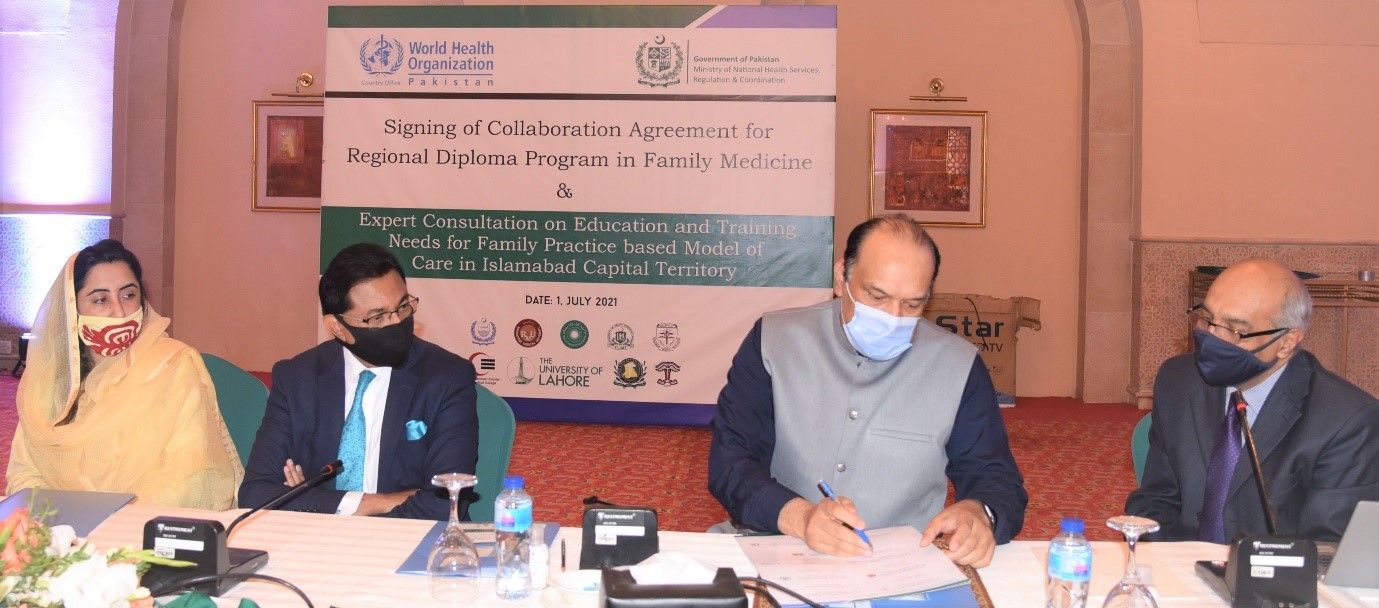
31 August 2021 – The WHO country office in Pakistan has signed a collaborative agreement with 9 leading medical universities to start a diploma course in family medicine to address the shortage of family physicians needed to strengthen primary health care in Pakistan. Currently, primary care services are provided by general practitioners and medical officers with no formal training in family medicine.
A newly trained cadre of family physicians in Pakistan will be able to provide quality and people-centred integrated health care. This includes both preventive and curative services and improved quality of care. Trained family physicians will help implement the Universal Health Coverage Benefit Package through the primary health care oriented model of care.
Dr Palitha Mahipala, WHO Representative in Pakistan, said that WHO was committed to supporting countries to improve access to quality, comprehensive and affordable health care services through implementation of the family practice approach. The family practice-based model of care plays a major role in strengthening the health care delivery system at the primary care level. He also praised the universities for their commitment in establishing and strengthening family medicine departments and acknowledged the Government of Pakistan's efforts in progress towards the targets of the Sustainable Development Goals and universal health coverage and reaffirmed WHO's continuing support.


